The Road To Equality: Talking With LGBTQ+ Leaders Around the World
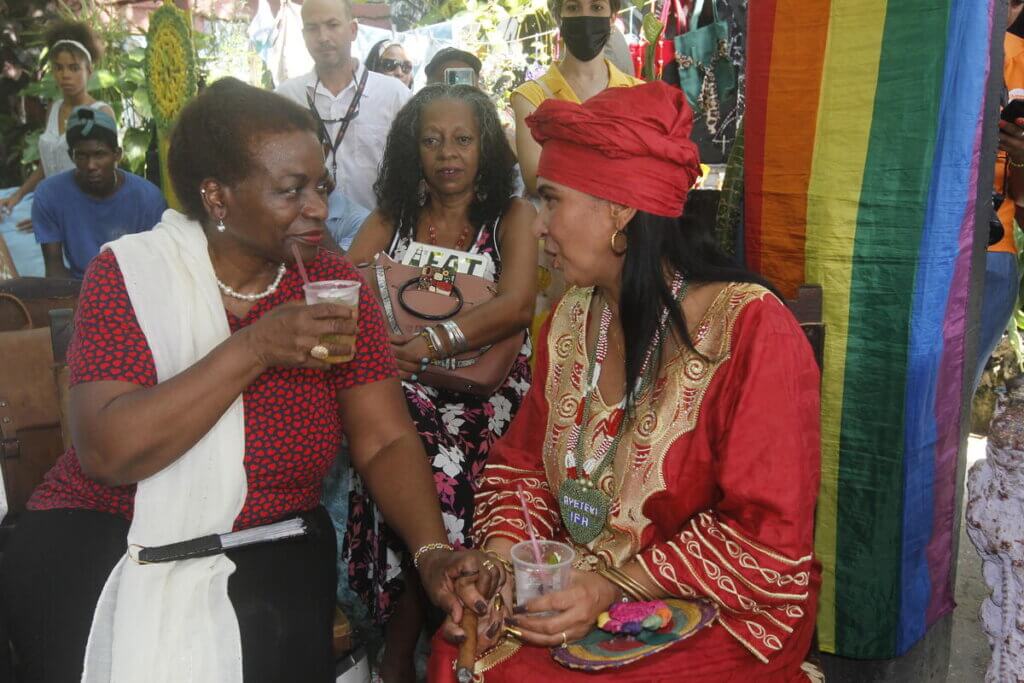
Here at the United Nations Sexual and Reproductive Health Agency, we work tirelessly to achieve gender equality through the power of healthcare and education. But far too often, the LGBTQ+ community is excluded from conversations of sexual and reproductive health. We’re working tirelessly to change this narrative.
As UNFPA Executive Director Dr. Natalia Kanem puts it best, “To truly leave no one behind means safeguarding the rights of LGBTQ+ people in all settings and including them fully in humanitarian preparedness, response, relief and recovery efforts.”
That’s why we sat down with LGBTQ+ community leaders around the world to understand their struggles, their joys, and how we could better support their communities.
Acceptance in the heart of the Amazon
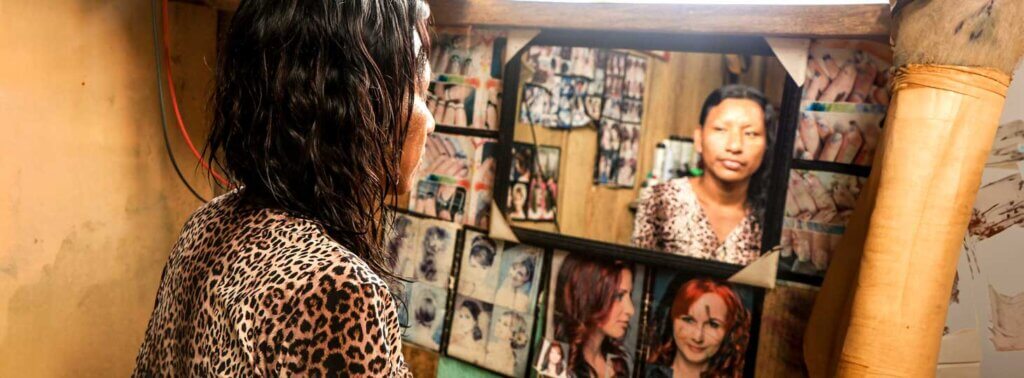
When Gaby was a child, she found herself enthralled with hair and beauty products. She had always dreamed of becoming a stylist – but being an Indigenous trans woman meant the odds of leaving her town were stacked against her.
But Gaby was determined to make her dreams a reality. She left her remote town of Mamayaque, located at the heart of the Amazon, and moved to Lima to study cosmetology. The transition to Lima was not easy for Gaby. On top of the city being a sharp contrast to the rainforest’s tranquility, Gaby was constantly discriminated against.
“For me, as a trans woman, it wasn’t easy. I had to endure insults and mistreatment just for being different.”
Still, Gaby did not give up on her dreams. She finished her studies and worked in various cities as a stylist. But after so many years away from home, she still longed for the town she had grown up in. Finally, she moved back to Mamayaque – determined to make her small town a place of acceptance and love.
Thanks to our supporters, UNFPA was able to support Gaby’s objective. Our Nuwa Senchi project, which is designed to provide women with protection against violence and essential services, helped Gaby learn more about her rights and become and advocate for all women in her community. Now, Gabby helps activate women in her community to participate in UNFPA workshops and activities to help make Mamayaque safer for all.
Caught in the eye of the storm
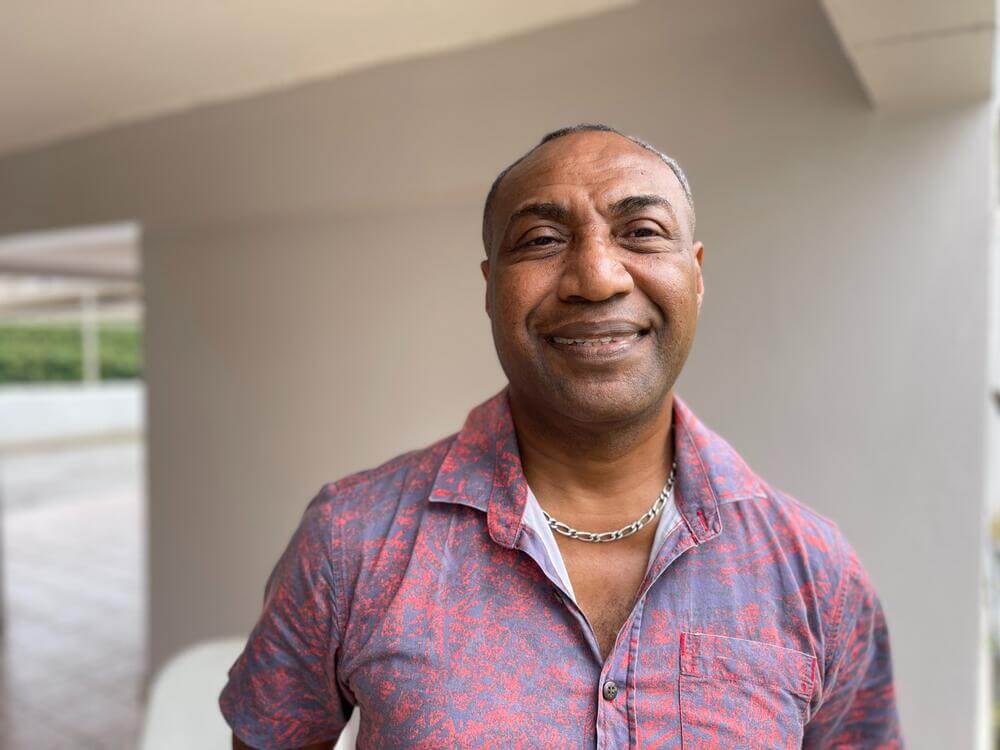
“When it comes to evacuation, when it comes to assistance, anything that is related to climate change, our people are left out because of their identity, their sexual orientation, their perceived gender expression.”
This is what Saimone, who chairs the Rainbow Pride Foundation in Fiji, shared with us. Fiji is one of the hardest hit places by the climate crisis – and the LGBTQ+ community is often excluded from any aid that is rushed in. Not only does this lack of consideration reinforce a feeling of alienation among the community – it also creates life-threatening situations.
That’s why we’re working with the Rainbow Pride Foundation to help fill the gaps that have been created. We’ve worked together on our very first Pride Kit – which is a Dignity Kit that was created uniquely to address the needs of LGBTQ+ people during a disaster. The kit contains essential reproductive health commodities, hygiene products, and information on violence support.
“It was the rebirth of Tshering.”
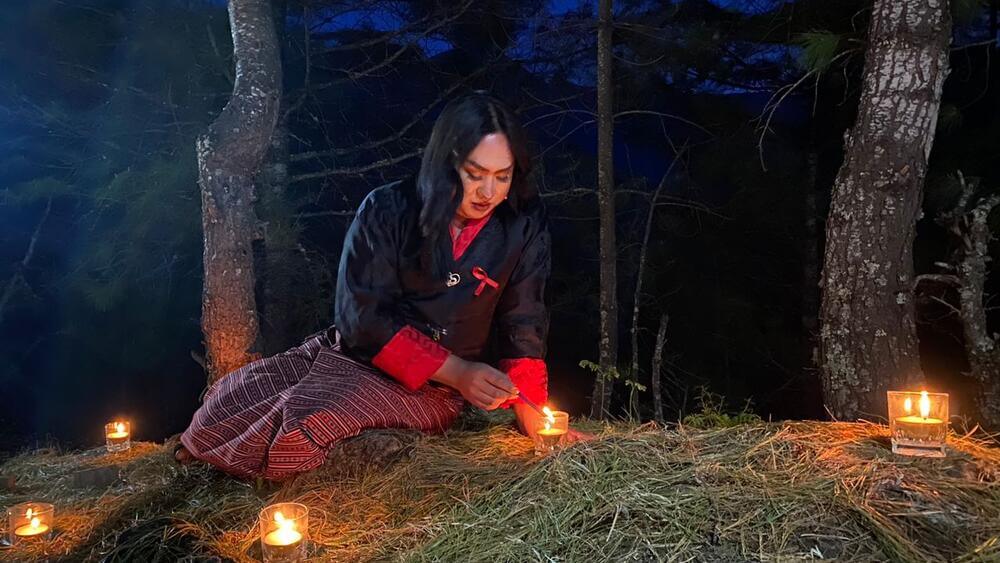
Tshering always knew that she was trans – but she delayed transitioning for longer than she wanted due to social pressure. When she came out, she was rejected not only her family but her school as well. After her male classmates trapped her in a bathroom and doused her with water – which her teachers ignored entirely – Tshering realized her school was no longer safe for her. She had to leave.
“Education is the key to unlocking potential, and every transgender person deserves the right to access it without fear of discrimination. Ensuring that transgender individuals have equal opportunities in education is essential for building a more inclusive and equitable society,” Tshering shared with us, looking back on it.
It took Tshering long, hard years to gain support from her loved ones. But finally, Tshering’s mother signaled that she had accepted her daughter by gifting her gold earrings and a rachu, a ceremonial cloth worn by women in Bhutan.
Today, Tshering is a leader among the transgender community in Bhutan. As an outreach worker and advocate at Pride Bhutan, she works with community members to urge them to access healthcare and share resources for violence. UNFPA is supporting Tshering’s work by helping to connect Bhutan’s LGBTQ+ community with sexual and reproductive care, as well as violence response services.
Our path forward
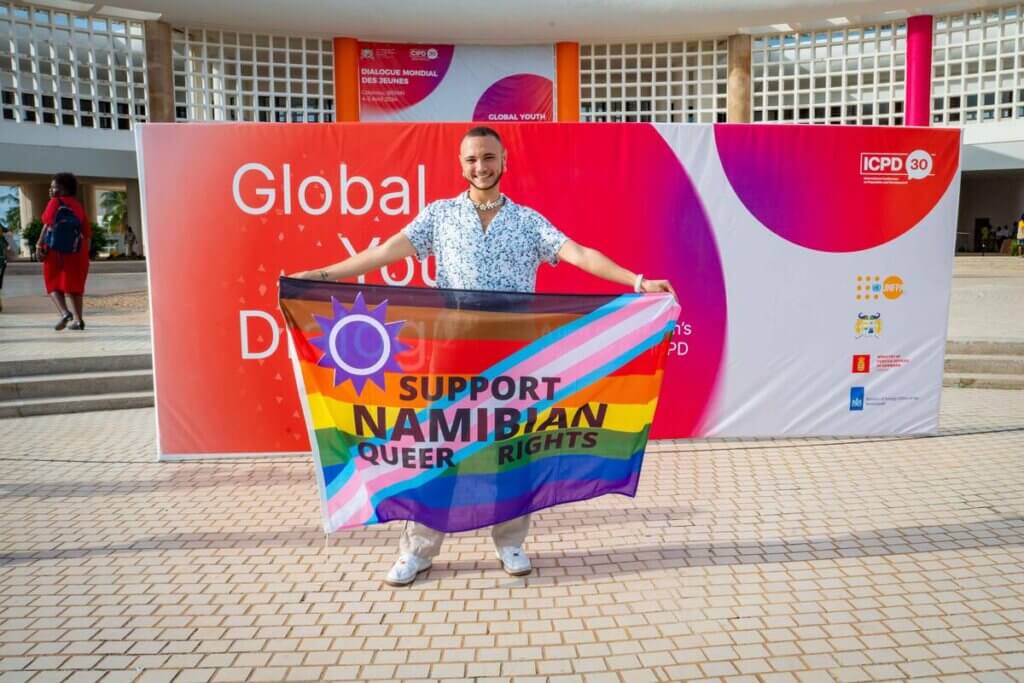
In the last few decades, we have made incredible strides toward equality for all – but our work is nowhere near complete. Research shows that LGBTQ+ people disproportionately struggle to access to stigma-free healthcare that addresses their unique needs and face increased incidents of violence. One study found that more than half of all transgender and non-binary people had experienced intimate partner violence. Another study found that 44% of lesbians and 61% of bisexual women have experienced violence.
More work must be done to build a future where every single person is not only safe but treated as an equal. Thanks to your support, we’re making progress toward this goal every day, but our work isn’t complete until every last person has been reached with the sexual and reproductive care they need.